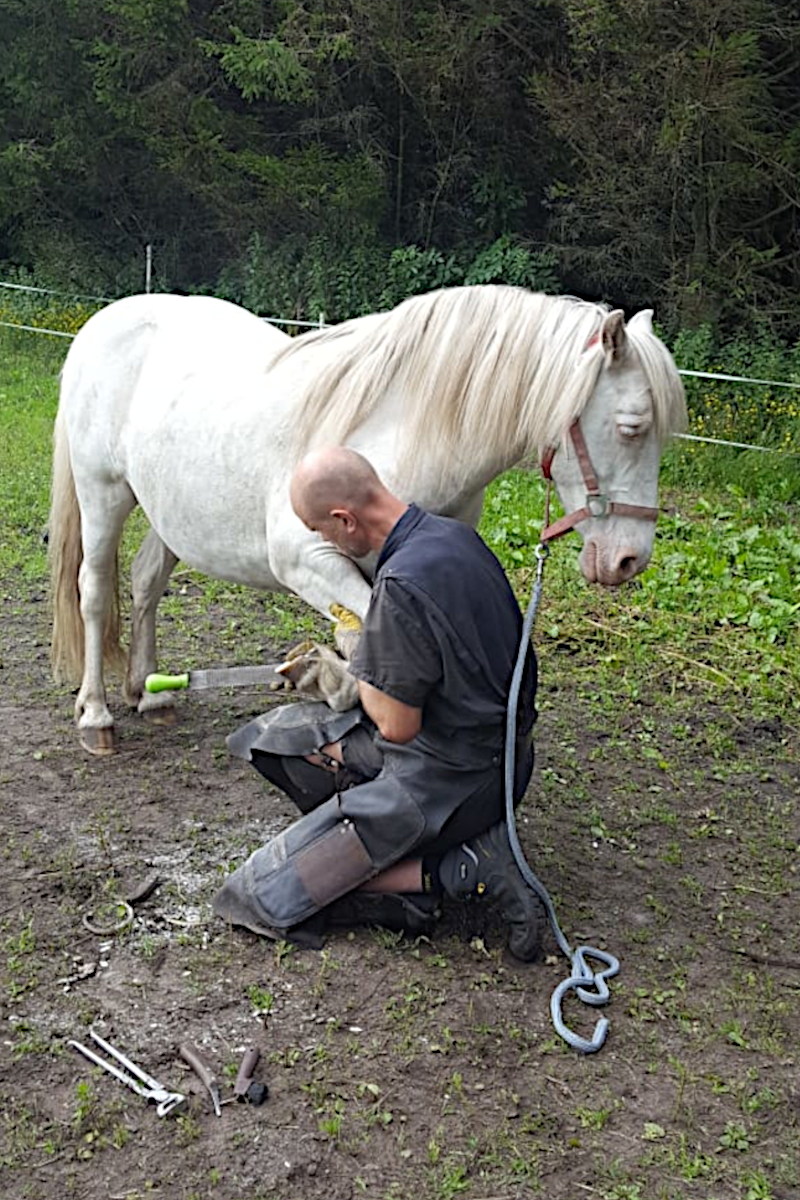Hoofhealth
The following aspects will affect the condition of the hooves:
The manner and frequency of the Hoof Care:
It is important that proper hoofcare is performed on a regular basis. How often can differ a lot and is dependent on several factors. For example the circumstances under which a horse lives.
 General lifestyle and environment:
General lifestyle and environment:
The way a horse is kept will affect the health of the horse and therefore also the hoofhealth. When a horse feels good this will positively affect the overall health of the horse. Hooves will reflect this well-being.
Nutrition:
Good horse feed is low in carbohydrates (sugars and starch), protein and fats. It is rich in fiber and contains sufficient vitamins, minerals and omega fatty acids. Sparse, low nutrient forage is best for horses. Minerals need to be present not only in the adequate amounts but also in the proper ratios. Too much of one mineral can affect the absorption of others.
The amount of movement:
Wild horses travel great distances on hard and dry surfaces. Lots of movement stimulates hoofhealth through the constant process of wear and growth. A domesticated horse should also be able to move every minute of the day.
Hygiene:
Regular scratching out and cleaning of the hooves promotes hoofhealth. The sole and the frog in particular suffer a lot from the effects of ammonia in horsedroppings.